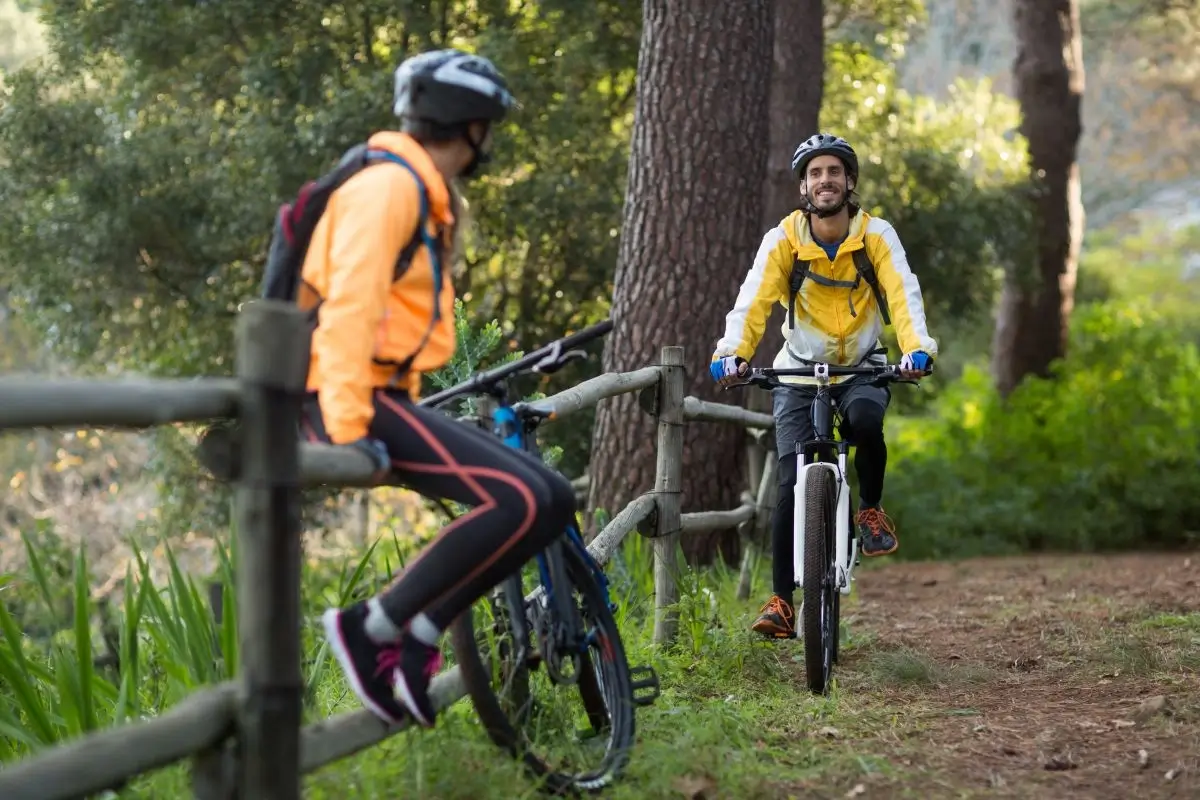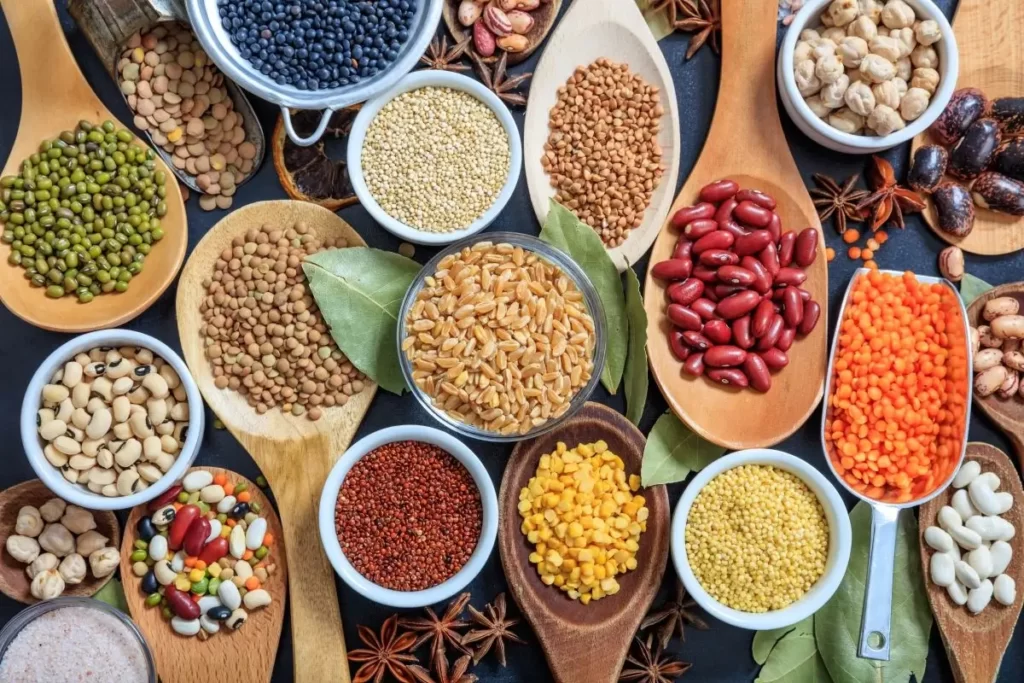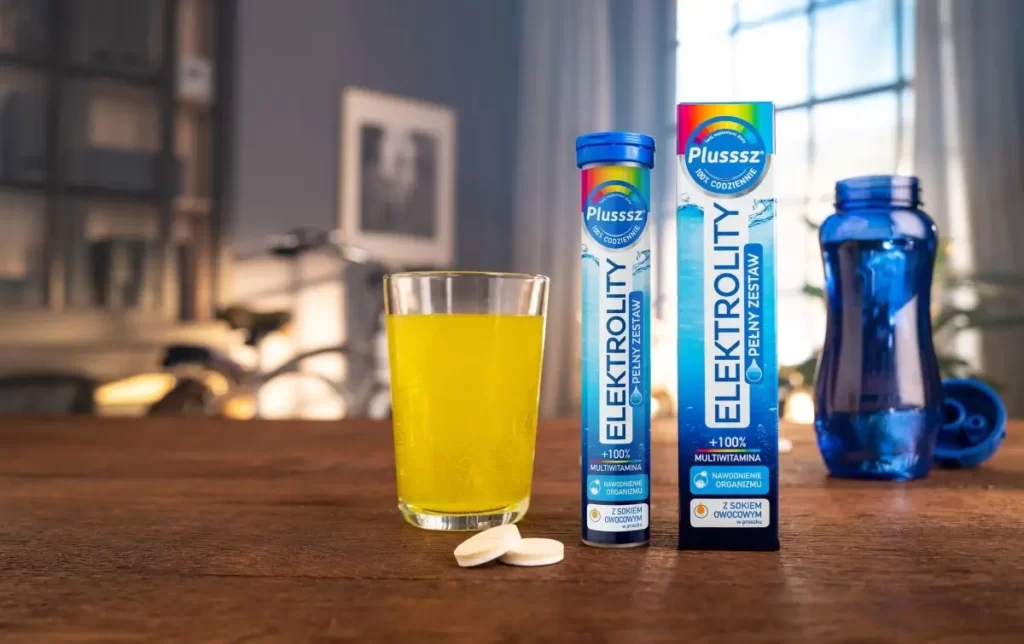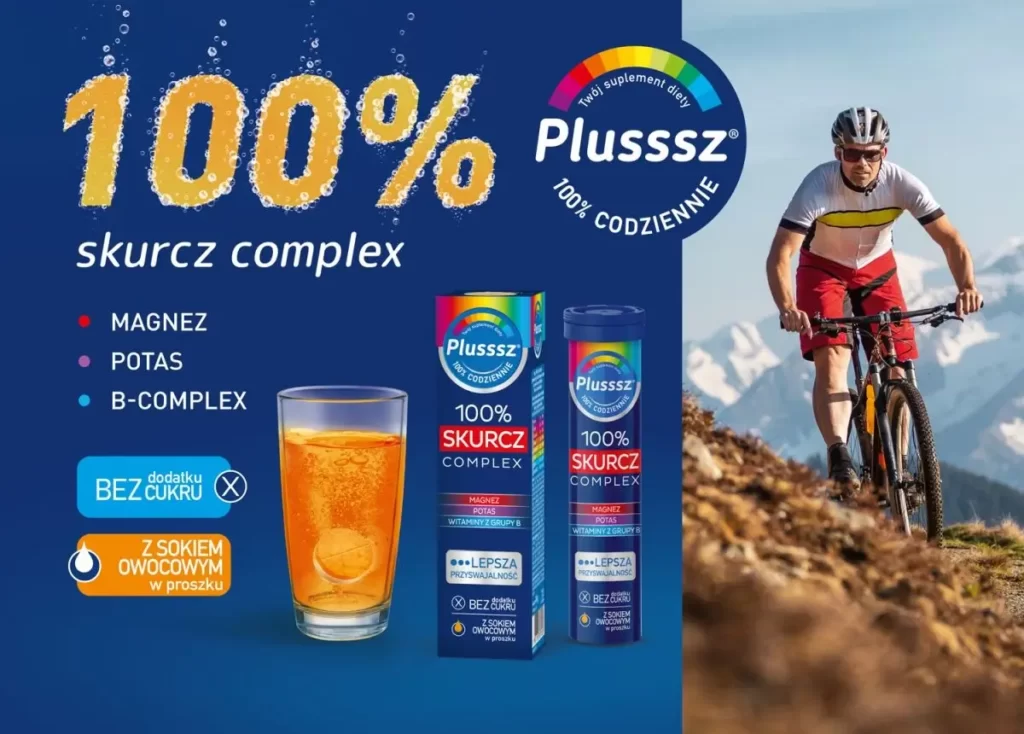Sport is health, and regardless of whether you are a professional athlete or an amateur in love with your discipline, it is worth knowing how to do sport in a way that is beneficial for you and what your body needs in connection with increased effort. Sport involves the expenditure of energy, which must be constantly replenished. During increased effort, the body sweats, and with sweat it removes electrolyte substances – potassium, magnesium and sodium. Magnesium and potassium help in the proper functioning of muscles and the nervous system.
Most people who are interested in the topic of a healthy lifestyle (and athletes can be safely included among them) are aware of the role that diet plays in well-being and achieving good results. A properly balanced diet that provides all the necessary ingredients is the foundation on which you can build form and improve your results – both professional, professional records, as well as amateur life goals and challenges set for yourself.
In the following article, we will summarize information about a properly balanced diet for people practicing sports. We will tell you what ingredients to look for in food products and answer the most frequently asked questions about which vitamins are important for athletes.
The role of physical activity in maintaining well-being
Over the years, the lifestyle of most people has changed. The industrial revolution has caused the amount of energy and movement spent on work to decrease significantly. In the last few years, we have witnessed another revolution. The computerization of work and life outside of it means that we spend most of our time in an unnatural, sitting position. Along with these changes, ailments have appeared that were previously not typical for most people, including muscle discomfort, eye strain, muscle cramps, and increasing body weight. All these issues have caused public health specialists to sound the alarm. There is a need to include additional, forced movement in your daily life, which will prevent poor well-being and chronic ailments.
Professional athletes aside, many people who play sports as amateurs do it incorrectly. In this article, we will not discuss issues related to the technical aspects of exercising, but only to preparing for them and a proper diet and hydration of the body. Even at this stage, people tend to ignore important issues that affect their well-being.
The World Health Organization (WHO) recommends actively practicing sports at least 5 times a week, for no less than 30 minutes. In practice, in addition to traditional sports disciplines, exercise can include housework, walking or climbing stairs. Even when performing these simple activities, remember about your safety and the correct technique, e.g. lifting heavy objects or ergonomic bending.
For some, exercise is not a pleasure, they complain that it involves a waste of time, the need to invest in expensive sports equipment or simply does not bring them pleasure and is only an unpleasant duty that they perform out of reason and “for health”.
It does not have to be this way. The choice of sports disciplines and places where you can exercise is so huge that everyone will certainly find something for themselves. If you are in the described group and exercise is not enjoyable for you, we advise you to experiment and look for other forms of exercise – static, team sports, organized exercise, outdoors or combined with a trip to an attractive place.
Why is hydration so important for people practicing sports (including amateur sports)?
During physical exercise, physiological changes occur in the body, which consequently lead to, among other things, improved fitness, muscle mass growth, reduced fat mass or improved circulatory system. Sport stimulates the production of endorphins, called “happiness hormones” by exercise enthusiasts, and also contributes to increased sweating.
Along with sweat, the body gets rid of water, metabolic products (urea) and important electrolyte elements. What are electrolytes? Electrolytes are a group of elements that naturally occur in food and play a number of important roles for the body. Magnesium, sodium and potassium are the main electrolytes. They have many properties, including:
| Ingredient | Properties |
| Magnesium |
|
| Potassium |
|
Table 1. Properties of magnesium and potassium
Both magnesium and potassium are found in vegetables, fruits, nuts, groats and grains. Basing your diet on these ingredients will help ensure the correct level of electrolytes in your diet and can make exercising more enjoyable and better for your well-being. If you find it difficult to control the supply of these ingredients, consider including a ready-made preparation in your daily habits, which contains not only magnesium and potassium, but also other essential minerals and vitamins.
How to ensure proper hydration in people practicing sports?

Constantly replenishing fluids is essential for all those who like to spend their time actively or professionally practice some discipline and try to achieve the best results in it. Fluids can be replenished in the traditional way – in small sips, in small portions, but often, by drinking water. It is worth remembering to always have it with you in your training bag.
Sometimes, however, water is not enough. It also happens that for some people, the obstacle to regular hydration is the lack of taste of water or a deterioration in training performance when drinking a large amount of it at once. An alternative for such people are ready-made preparations containing electrolytes – either purchased as drinks or in the form of effervescent tablets to dissolve in water yourself. Tablets are a very convenient way to replenish electrolytes and hydrate yourself. They are easy to transport, because the packaging takes up little space, they can be dissolved in cold water anywhere, and fans of ecological solutions will appreciate that they can be added to a bottle of your own water – e.g. filtered tap water, which helps reduce plastic waste and is very convenient (an empty bottle taken to the gym and then filled with water is lighter than a bottle with an electrolyte drink).
Proper preparation for training
People who do not train professionally or those who are just starting their adventure with sports often wonder how to prepare for a workout at the gym, swimming pool or even a walk, and they also worry and stress that during exercise they will find out that they have forgotten something. The solution to such dilemmas is to make a list and check it off when packing your bag to go out. The first few times you may feel strange about it, but after the first training sessions, the habit of preparing for exercise will become permanent, and you will not be packing a bag with a list – everything will be simple and intuitive for you.
Of course, the equipment in the bag varies depending on the type of sport you do. People who choose to walk should take much less equipment with them than someone training in the gym, swimming pool or in a sports club organising group classes. However, some elements and rules are common to all athletes, both amateur and professional.
- Don’t forget water or an electrolyte preparation to dissolve yourself – we put this item at the very top of the list because it is the most important. Training (especially very intensive) without water can be difficult, if the exercises are particularly exhausting, it may turn out that you will not be able to finish them without a few sips of water. If you forget water, in most cases you will buy it on the way or at the sports club itself, but if you prefer to hydrate with preparations containing electrolytes, make sure that a tube of effervescent tablets “lives” in your training bag for good. Fortunately, tablets with minerals and vitamins take up very little space and are easy to carry with you on your way to work, at home, in your sports bag or in the office. This way, you will never forget about them and they will always be at hand.
- Appropriate footwear – choose footwear for the type of activity you do. Different shoes will work well in the gym, and different ones when jogging. Sometimes, even the type of training requires a change of footwear – if you do aerobic exercise at the gym, ankle support and cushioning will be important, if you mainly do strength training (e.g. lifting weights or exercising on machines), you will appreciate a flat sole and stabilizing footwear. Some sports do not require you to wear shoes, e.g. yoga or swimming, but this does not exempt you from the obligation to take flip-flops with you – you will walk in them from the locker room to the gym or pool and they will be useful when showering after physical exercise.
- A small snack or post-workout meal if the sport you do is particularly strenuous and you are working on building muscle mass. Nuts (they provide magnesium, which is important for nerve function and proper muscle function), a banana (which will replenish your energy and provide your body with potassium) or oatmeal with dried fruit and grains are great snacks.
Training starts long before you leave home or spread out your mat on the floor in the living room. The basis for building muscle capacity and mass, as well as achieving better and better results in sports is taking care of the fuel for muscle work and proper mental preparation.
If you are an amateur athlete or are just getting ready to go to your first professional sports training, first take care of the proper nutrition of your body. What should a healthy, well-balanced diet look like?
Diet for people practicing sports
The World Health Organization (WHO) has no doubt that exercise is very important for maintaining health and well-being. For several years, it has appreciated its role in building healthy habits, placing movement (and water) at the base of the modern food pyramid.
The diet of amateur athletes is not really much different from a properly planned diet of people who only occasionally engage in physical activity. It is important to provide yourself with fuel for exercise. Its best source is carbohydrates. You can get them from vegetables, rice, groats and dark pasta. Complex carbohydrates, which are contained in these ingredients, are absorbed and digested slowly. As a result, there are no sudden spikes in insulin levels in the blood, attacks of ravenous hunger after exercise or temptation to give up the diet in favor of unhealthy snacks.
In addition to carbohydrates, proteins are very important. Individual protein requirements vary. Amateur athletes tend to overestimate the role of protein in their diet, which often leads to too much meat and eggs in the daily menu (they are also sources of fat and cholesterol). Of course, lean meat and fish are important and good for well-being and building fitness, choose them wisely, buying products from certified sellers. Meat and eggs contain niacin, B vitamins (B6, B2, B12) and selenium. You can supplement some of your protein needs by choosing plant sources. Are you surprised? Many professional athletes follow a plant-based diet. Where to look for plant sources of protein?
Protein is rich in:
- nuts and seeds, which can be a great snack or a stand-alone dish (walnut roast is a recipe definitely worth trying),
- tofu and soy products are grateful meat substitutes, in addition to proteins they provide phytoestrogens and vegetable fats,
- legume seeds – peas, beans, lentils – are excellent sources of plant proteins. When prepared in an inventive way, they are delicious, nutritious and do not cause unpleasant symptoms such as flatulence or a feeling of fullness in the abdomen. Before preparation, soak them well, rinse them and cook with herbs – marjoram, rosemary, mint or oregano, which reduce the flatulence properties of legumes.

Legume seeds are a source of plant protein in an athlete’s diet.
Vitamins – which ones are good for sports?
When looking for vitamins that will support your performance and make you feel better during sports, pay attention to their proven properties. Among the vitamins and minerals that have a significant effect on athletes are:
| Ingredient | Properties | Dietary sources |
| Vitamin C |
|
|
| Potassium |
|
|
| Magnesium |
|
|
The above data are only examples, when looking for sources of vitamins and minerals, you can seek the opinion of a dietician or sports trainer who has completed a course that gives him the right to design sports diets. If you are not sure that your diet provides you with a sufficiently large supply of all vitamins, consider including a vitamin preparation that not only contains many ingredients in a convenient form, but often also provides them in such an amount that covers up to 100% of the daily daily requirement. Which preparation should you trust? Choose an offer from a proven brand. A good choice will be the multivitamin dietary supplement Plusssz Elektrolity 100% Multiwitamina and the dietary supplement Plusssz 100% Skurcz Complex.
Plusssz Elektrolity 100% Multiwitamina are effervescent tablets with a mango and pineapple flavor. Plusssz Electrolytes + 100% Multivitamin contains 100% electro complex, a unique set of all the most important electrolytes, such as sodium, potassium, magnesium, calcium and chlorine in appropriate concentrations, as well as glucose and a set of 10 key vitamins. Plusssz Electrolytes + 100% Multivitamin is worth using during hot weather, travel, physical and mental exertion, physical work and when we feel tired and fatigued. One tablet dissolved in a glass of cold water will perfectly hydrate the body and replenish the level of electrolytes.
Plusssz 100% Contraction Complex is a preparation containing magnesium and potassium as well as B vitamins and coenzyme Q10. Potassium and magnesium support proper muscle function and help reduce the feeling of fatigue and stress, while B vitamins, e.g. niacin, help maintain proper psychological functions.

Electrolytes in the convenient form of effervescent tablets
How to choose electrolytes for an athlete?
Carbohydrate-electrolyte solutions help maintain endurance during long-term exercise and increase water absorption during physical exercise. When choosing an electrolyte preparation, pay attention to its composition and additional properties, such as the form of administration or taste. By choosing tablets to dissolve in water yourself, you increase the chance that you will not forget to take a drink with you to training. The tube with tablets is easy to put permanently in your training bag, it does not weigh much, is easy to transport and you can always have it with you. After or before training, you can fill the bottle with water at the sports club and add an effervescent tablet to it.

PLUSSSZ effervescent tablets are a great way to relieve cramps – they provide magnesium, potassium and B-complex vitamins
Choose a product that tastes good to you. Many effervescent tablets have a natural fruit flavor, which is very refreshing after training.
Pay attention to whether the product you choose contains sodium, calcium, potassium and magnesium cations and chloride anion. If you are on a reducing diet, you will especially appreciate tablets that do not contain added sugars.
Questions and answers
I am a beginner athlete, I train occasionally, but I want to increase the intensity of exercise. Do I need a special diet?
It depends on what your meals look like now. If you lead a balanced lifestyle and have been watching what you eat for some time, your diet probably does not require modification. Look at the individual meals and make sure they contain enough nutrients, the right structure of proteins, carbohydrates and fats and that you do not forget about proper hydration of the body. During the day, choose unsweetened drinks and light herbal infusions, drink water. If you don’t like its taste, you can try to change it slightly by adding fruit, herbs (mint) and citrus pieces. Take care of hydration after training as well. If you are considering including electrolyte drinks in your training habits, choose ones that you can easily take with you to the gym or swimming pool and that provide all the necessary minerals.
Don’t forget about snacks! Nuts and dried fruit are a source of energy, potassium and magnesium, which have a positive effect on the functions of the nervous system.
I Don’t Like Isotonic Drinks From Stores, Is There Any Alternative For Them?
Indeed, the taste of hydration drinks that are widely available in stores may not appeal to everyone. If you don’t like them, you can swap them for plain water or look for electrolytes in a different form, e.g. effervescent tablets that dissolve in water. These types of products have a fresh, fruity taste and are very refreshing. They do not contain added sugar, which is important for people who want to control their body weight.
If none of the options we have mentioned meet your needs, you can try making a hydrating drink yourself. How? Just combine water (preferably still), a little honey (contains minerals), a pinch of salt and lemon juice. It is best to drink the drink prepared this way right away.
I Don’t Like Any Sports, Despite This I Know That Physical Activity Is Important. Is There Any Way to Motivate Yourself to Exercise?
In the media, you will find many examples of people who have found the motivation to be physically active regularly and have changed their lives as a result. However, reality is difficult and it may turn out that finding such large amounts of motivation is beyond your capabilities. Don’t worry, it is important to introduce movement into your everyday life using the small steps method.
Try to gradually extend the time you do sports, find a companion and a discipline that interests you. Currently, the sports services market is very well developed. You can choose from more static or dynamic forms of movement. Sometimes the obstacle is a long commute to the fitness club or an unsuitable company, but this should not be an excuse either – did you know that training at home can also be very effective?
Just remember to prepare well and do not neglect hydration. At home, it is easier to ignore this and run to your daily duties right after the exercises.
Bibliography:
- Suliga E., Eating habits of women and men aged 30+, “Studia Medyczne” 2012, no. 28, vol. 4, pp. 43–50.
- Fraczek B., Gacek M., Grzelak A., Nutritional support of exercise capacity in a group of competitive athletes, “Problemy Higieny i Epidemiologii” 2012, no. 94, vol. 4, pp. 817-823.
A balanced diet and a healthy lifestyle are important for maintaining health.
